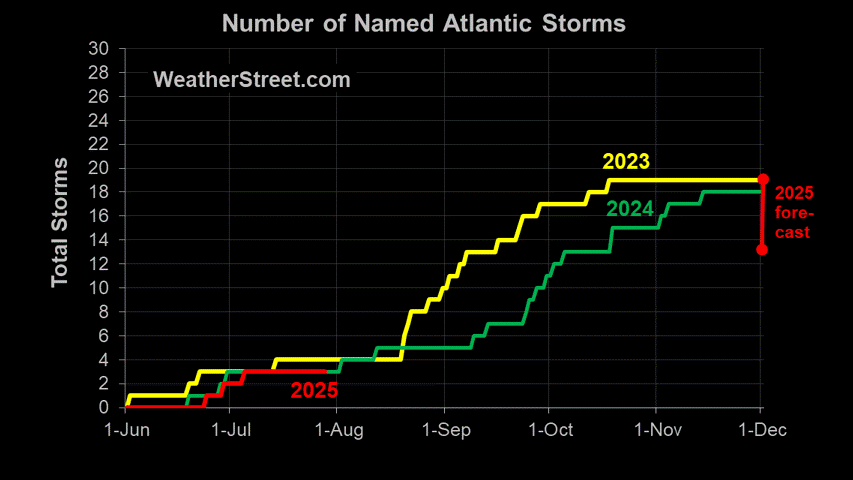No La Nina this summer after all
Early this spring predictions ran hot and heavy that we would have a very active hurricane season. Much of these predictions were due to the indication that a La Nina was forming in the Pacific. The general cooling of equatorial Pacific waters generally results in an increase in tropical activity and intensity. Add this to an expectation of an already high activity and we could eb in for a very busy season. It certainly looked that way with the first storm forming before the season even started and the second storm forming on June 1st, the first day of the season.
Well it seems like we will not be experiencing a La Nina this summer after all. NOAA has predicted that La Nina will not form in the Pacific during the next two months, which are the most active months of the season.
Of course we should not let our guard down.
Of course the key thing is to be prepared. We must remember that when hurricane Andrew came ashore, it was the only storm in that year (1992, I think) but it was a doozy.
Well it seems like we will not be experiencing a La Nina this summer after all. NOAA has predicted that La Nina will not form in the Pacific during the next two months, which are the most active months of the season.
Of course we should not let our guard down.
"There are so many other ingredients that contribute to the development of
tropical cyclones, it's not just the fact that we don't have a La Nina that
comes into play here," Feltgen said
This year, forecasters have predicted an above-average hurricane season,
which runs June 1 through November. They believe there will be 13 to 17 named
storms, with seven to 10 of them becoming hurricanes and three to five of those
reaching at least Category 3 strength.
Part of the reason behind this,
Feltgen said, is that we're in an active hurricane cycle - a phenomenon of
heightened activity that can last for decades. The last one spanned the 1940s
through 1960s. The current one started in 1995 and could last for another
decade, Feltgen said. "So all things being equal, we expect an above average
number of cyclones," he added. "Be prepared."
Of course the key thing is to be prepared. We must remember that when hurricane Andrew came ashore, it was the only storm in that year (1992, I think) but it was a doozy.









<< Home